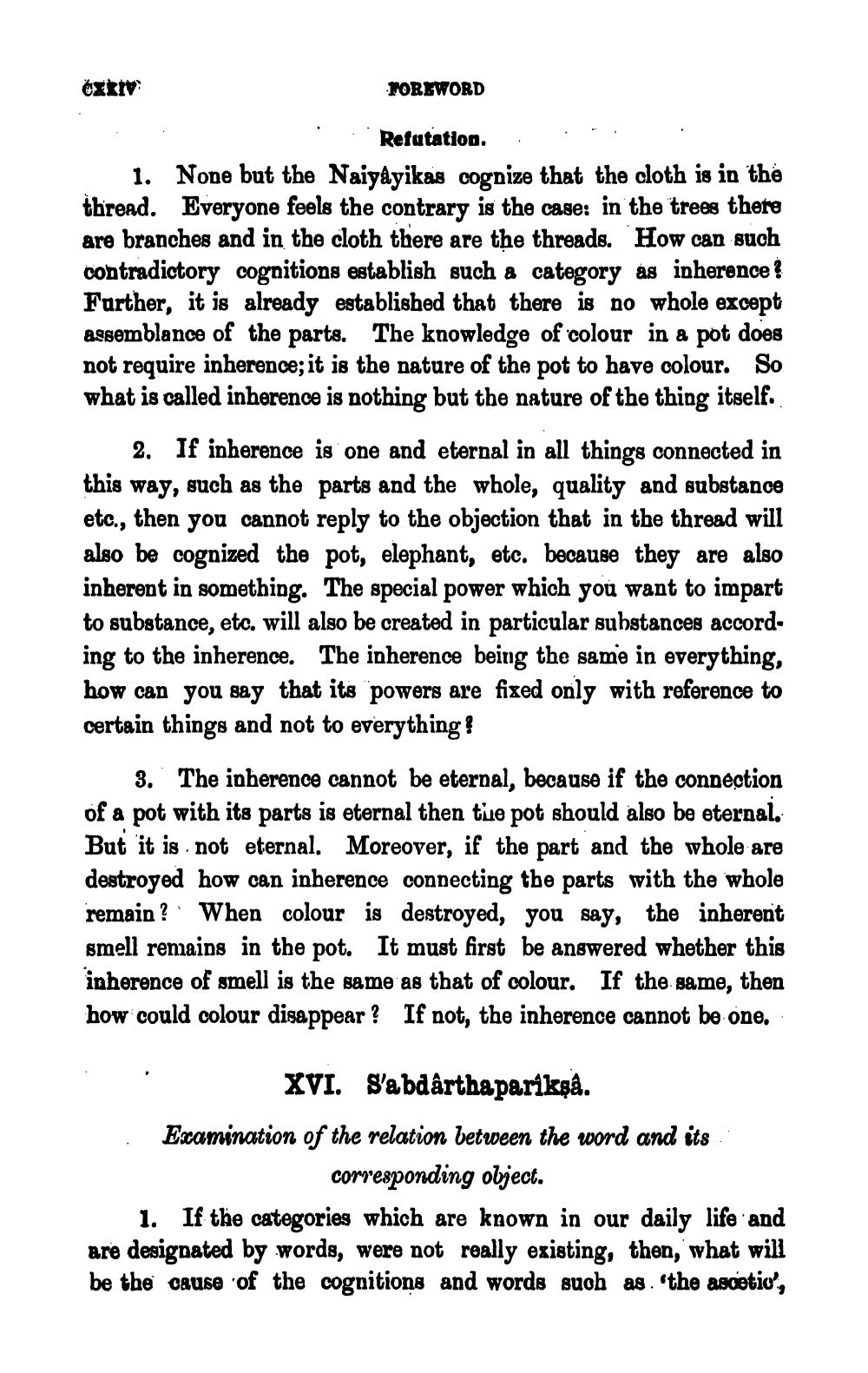________________
FOREWORD
Refutation. 1. None but the Naiydyikas cognize that the cloth is in the thread. Everyone feels the contrary is the case: in the trees there are branches and in the cloth there are the threads. How can such contradictory cognitions establish such a category as inherence? Further, it is already established that there is no whole except Assemblance of the parts. The knowledge of colour in a pot does not require inherence; it is the nature of the pot to have colour. So what is called inherence is nothing but the nature of the thing itself.
2. If inherence is one and eternal in all things connected in this way, such as the parts and the whole, quality and substance etc., then you cannot reply to the objection that in the thread will also be cognized the pot, elephant, etc. because they are also inherent in something. The special power which you want to impart to substance, etc. will also be created in particular substances according to the inherence. The inherence being the same in everything, how can you say that its "powers are fixed only with reference to certain things and not to everything!
3. The inherence cannot be eternal, because if the connection of a pot with its parts is eternal then the pot should also be eternal. But it is not eternal. Moreover, if the part and the whole are destroyed how can inherence connecting the parts with the whole remain ? When colour is destroyed, you say, the inherent smell remains in the pot. It must first be answered whether this inherence of smell is the same as that of colour. If the same, then how could colour disappear ? If not, the inherence cannot be one.
XVI. S'abdârthaparikpå. Escamination of the relation between the word and its
corresponding object. 1. If the categories which are known in our daily life and are designated by words, were not really existing, then, what will be the cause of the cognitions and words such as. "the asgətio',




